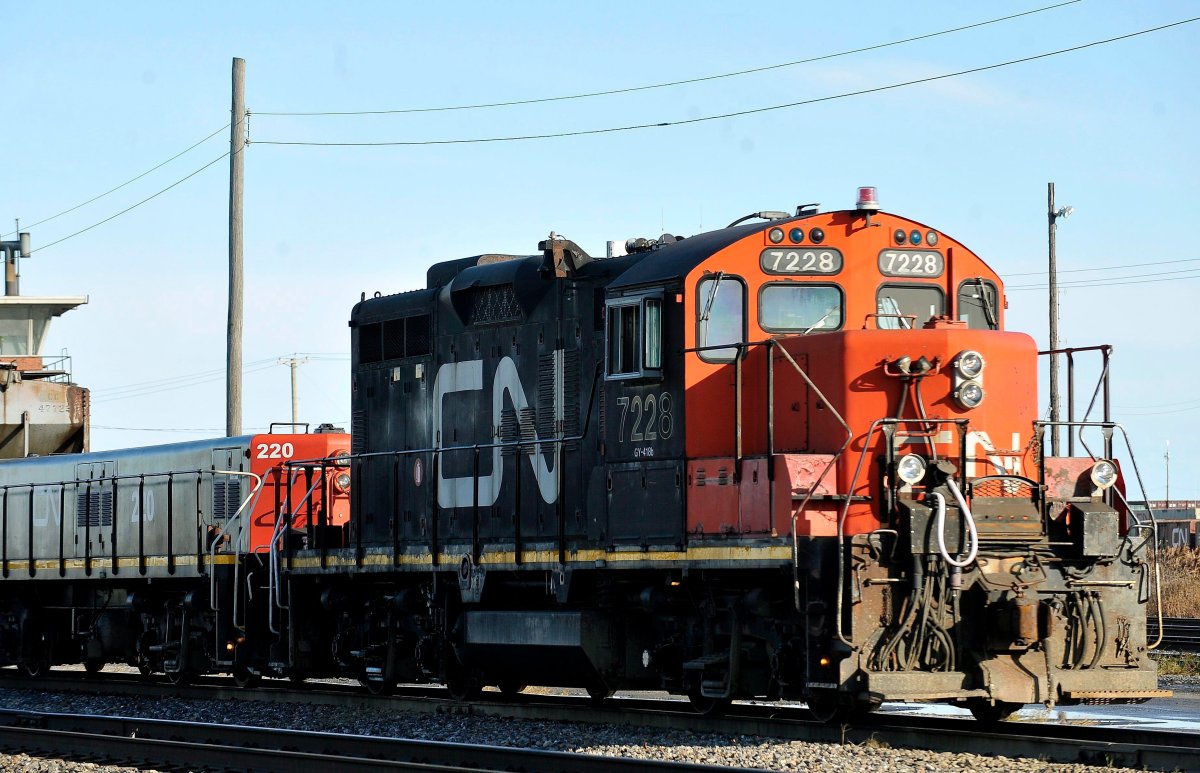EDMUNDSTON, N.B. – A report into the 2018 death of a New Brunswick CN worker says the brakes of two runaway rail cars were compromised by ice before the cars collided.

The Transportation Safety Board of Canada says two cargo cars running uncontrolled in opposition directions along tracks at a CN yard in Edmundston collided on the morning of Dec. 4.
The crash killed a conductor trainee who was trapped on the footboard of the locomotive.
Investigators concluded in the report released Tuesday that the two cargo cars, which rolled down a slight grade, had been temporarily left with only their emergency brakes engaged.
The report says crew at the yard had believed the cars to be in a so-called “attended” state, adding that investigators discovered the effectiveness of the wheel brakes had been reduced because of ice and snow accumulation.
“The brake effectiveness…was reduced because of ice contamination on seven of its eight brake shoes,” the report says of one of the railway cars in its findings section.
The second car “was also compromised by the contamination of its brake shoes from snow and ice that had probably built up as it was moved through the yard,” the report adds.

It says if the CN employees had suspected the cars to be “unattended,” they would have been required under railway regulations to apply hand brakes to both cars and to conduct brake tests.
The report notes that the safety board had issued a notice a month before the incident reminding CN employees to remove ice from the trains’ wheel brakes, a process referred to as “brake conditioning.”
The notice stated that snow and ice accumulation on breaking surfaces “can dramatically reduce the effectiveness of train brake systems.”
This story by The Canadian Press was first published Jan. 26, 2021.
– By Michael Tutton in Halifax.
- Budget 2024 failed to spark ‘political reboot’ for Liberals, polling suggests
- Train goes up in flames while rolling through London, Ont. Here’s what we know
- Peel police chief met Sri Lankan officer a court says ‘participated’ in torture
- Wrong remains sent to ‘exhausted’ Canadian family after death on Cuba vacation



Comments